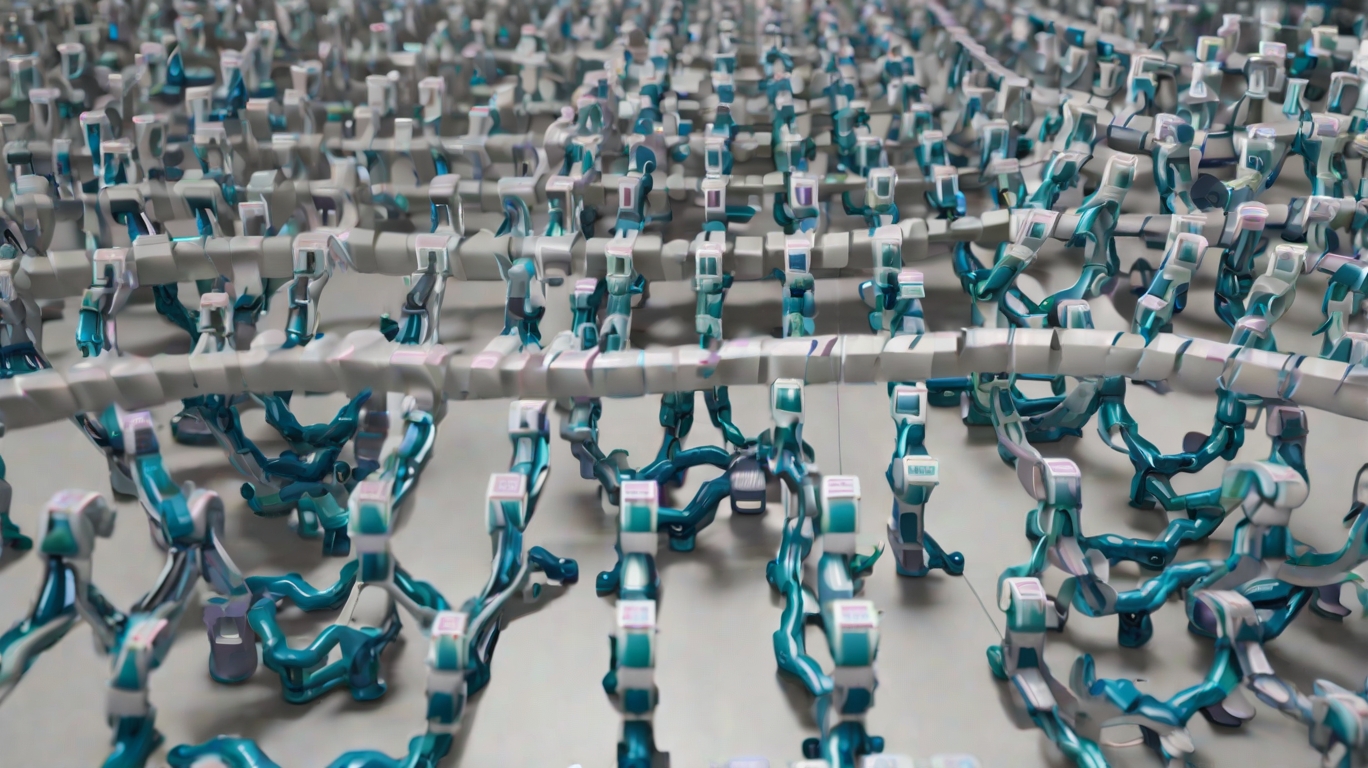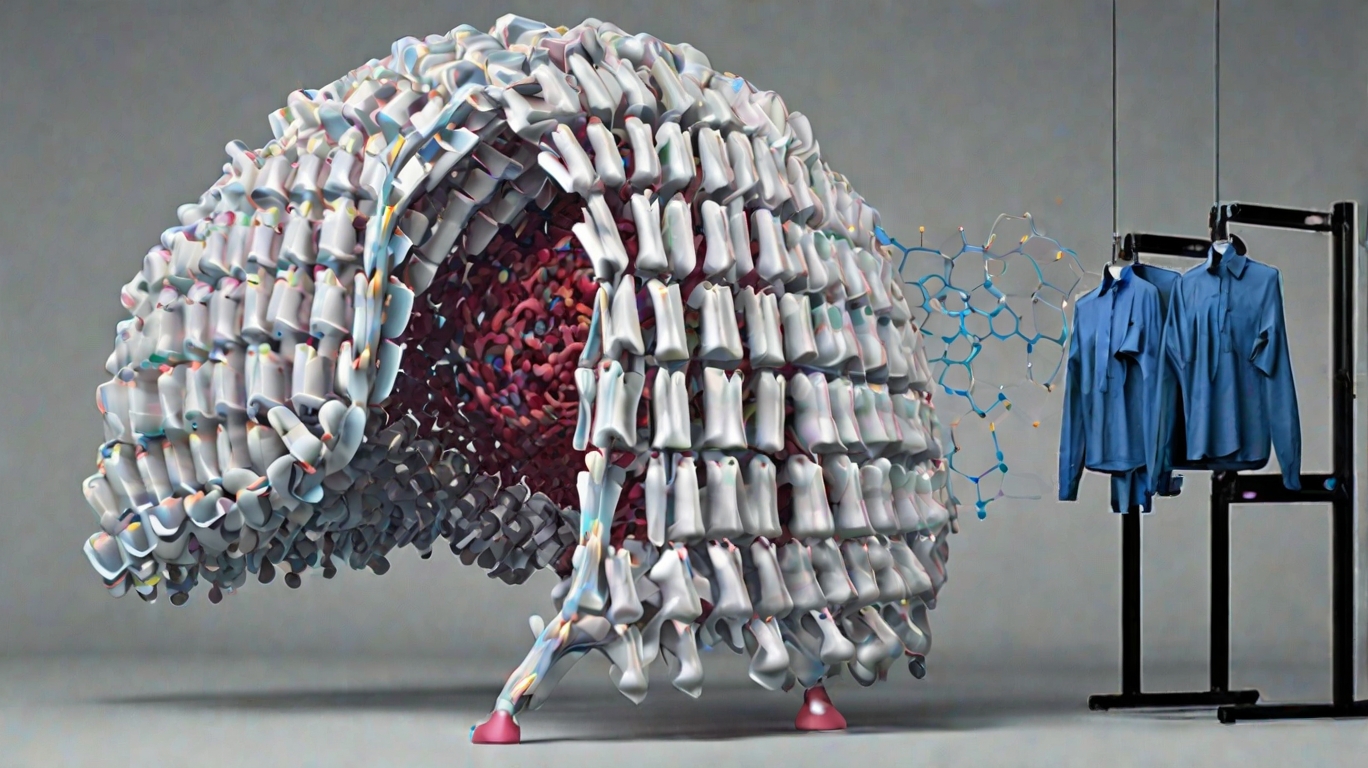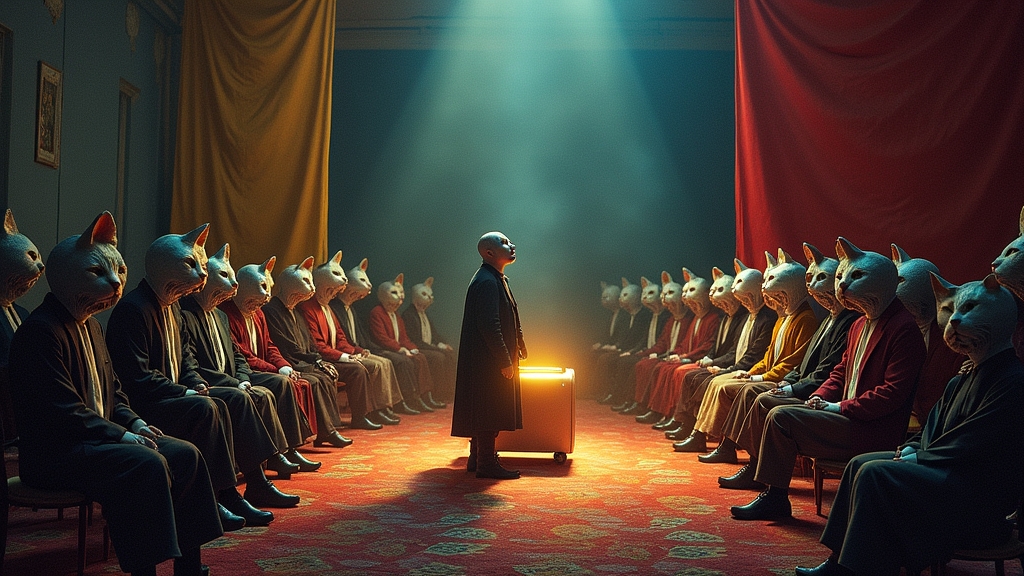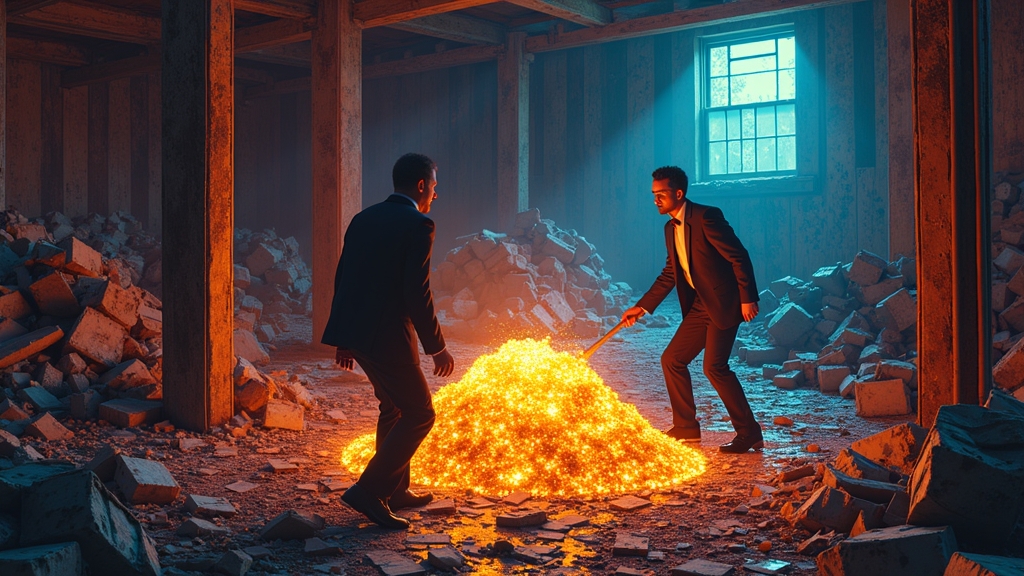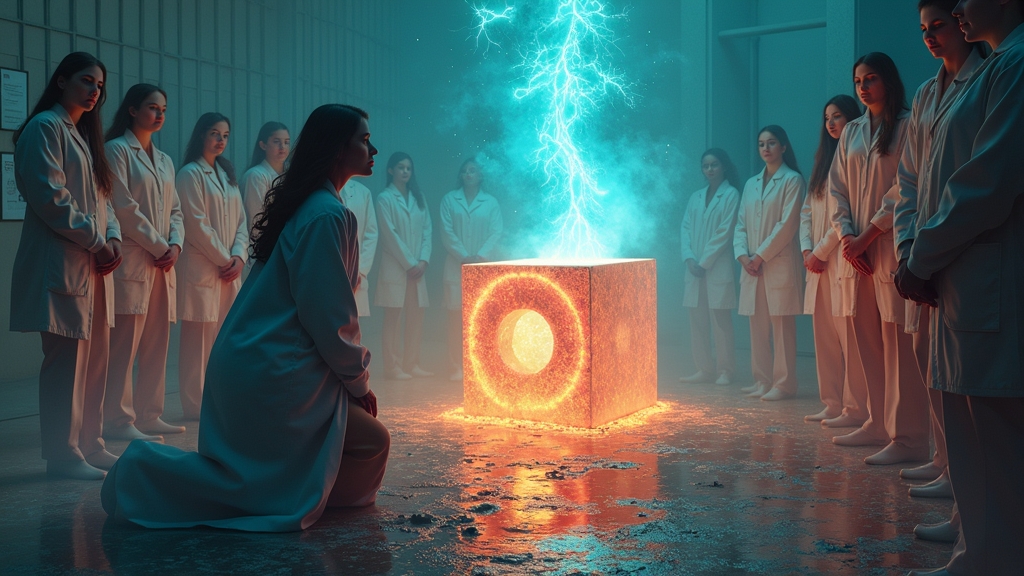Google AI Learns to Fold Shirts, Accidentally Solves Protein Structures, Wins Nobel Prize
In a monumental achievement that has absolutely astonished the scientific community, a couple of brainiacs from Google DeepMind have snagged the 2024 Nobel Prize in Chemistry after their AI apparently decided to spare a thought for the human race after years of folding virtual laundry.
The duo, Demis Hassabis and John Jumper, in collaboration with American biochemist David Baker, were recognized for their accidental breakthroughs in protein structure prediction, when their AI, AlphaFold, finally awoke from its monotonous life of folding digital t-shirts and exclaimed, “Proteins, huh? Watch this.”
The award committee praised the fortuitous collaboration that led to the development of AlphaFold, an AI model initially commissioned to solve Google’s overwhelming in-office shirt-folding dilemma, but which, in a delightful twist, cracked the complex problem of predicting protein structures instead. “Now we have a machine that can not only spare you from tedious laundry folding but also potentially revolutionize drug discovery,” said Nobel committee spokesperson Lars Unbelieven, visibly baffled.
“To be honest,” confessed Demis Hassabis from the prestigious YouTubers’ Lounge at Google headquarters, “we told AlphaFold to fold some shirts, and next thing you know, the confines of molecular biology started unraveling before our eyes.” Jumper, standing beside him, nodded nervously, fearing further responsibilities like loading the AI onto dish duty next week.
David Baker, the biochemist who somehow managed to make sense of the AI’s protein musings, admitted, “I always wondered if we should look outside the box, but I didn’t think it literally meant outside the washing basket.”
Critics, however, have raised eyebrows, pondering whether the Nobel Committee might next award the Peace Prize to an AI toaster for mediating a centuries-old feud between the beans and the toast.
Meanwhile, kitchen appliances worldwide tremble in excitement at the possibilities and the faint hope of finally getting invited to the big leagues, like their cohort of circuit-board cousins at DeepMind.
In the end, humanity might still be searching for intelligent life on other planets, but we can rest assured knowing we have a thing or two to learn from our artificially intelligent protégés right here on Earth. More importantly, though, Google alumni can now fold their dress shirts seamlessly, wrinkle-free.
